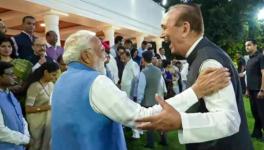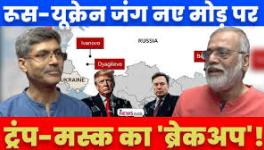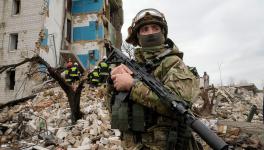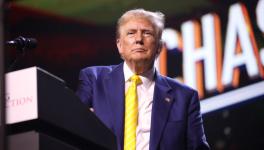Russia-Ukraine Agreement Could Mark the Beginning of an End to Conflict
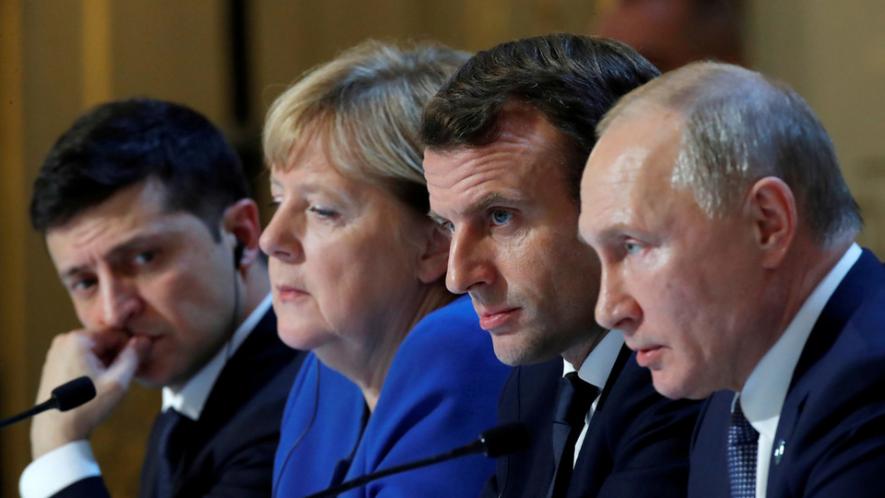
Joint communique by the leaders in Paris.
The agreement earlier this week between the Russian and Ukrainian presidents to reduce tensions between the countries could be a major breakthrough in the region. In a fresh bid to end the five-year-long war in the Donbass region, Ukrainian president Volodymyr Zelensky met his Russian counterpart Vladimir Putin on December 9 at the Elysee Palace in Paris. The meeting marked the first formal talks between the two countries’ leaders in the last three years. It was hosted by French president Emmanuel Macron and German chancellor Angela Merkel.
A joint communique was issued at the end of the meeting declaring measures to consolidate the ceasefire in the Donbass region and for the exchange of prisoners. The ceasefire will be monitored by the Organisation for Security and Cooperation in Europe (OSCE). It was agreed that all remaining prisoners will be exchanged by the end of the year and greater access will be provided for the Red Cross to visit all prisoners. Further reducing the number of troops in the conflict zone has also been agreed upon.
During the campaign for the April presidential election in Ukraine, Zelensky had promised an end to the war with Russia as one of his main agendas. The war has had a destructive effect on the Ukrainian economy and society, and has caused the death of more than 13,000 people.
France and Germany had made attempts to bring both sides together for discussions in 2014 and 2015 as well. Popularly known as the Minsk I and Minsk II dialogues, the summits had ended prematurely.
Following Monday’s meeting, Putin claimed that relations with Ukraine were moving in the right direction. He also insisted on adhering to the Minsk II agreement of 2015 which had set guidelines for ending the war in Donbass and talked about constitutional reforms and protection and amnesty for the rebels in Ukraine.
Zelenskiy, on the other hand, expressed some disappointment over the slow progress and hoped that further talks will resolve the contentious issues, including autonomy for Donbass. The joint communique talks about autonomy for the region under the “Steinmeier formula” in Ukrainian legislation, and mentions the next meeting between the two countries, planned after four months in Berlin, to discuss these and other contentious issues.
Zelenskiy is under pressure to not concede much ground to Russia. Outside the Presidential palace in the Ukrainian capital Kyiv, protesters stood on vigil with the slogan “No capitulation”. Ukraine wants the border between Russia and Donbass to have restricted access and blames the open border for the violence in the region. According to a RT report, responding to the Ukrainian demand, the Russian president stated that without Russian guarantees to the Donbass rebels, “I can imagine what would have happened next. There will be Srebrenica.”
In 1995, during the Yugoslav war, thousands of minorities of Bosnian ethnicity were massacred by the state-backed Serbian militias in the city of Srebrenica. Ukraine’s Donbass region has around 40% Russian speaking population.
Meanwhile, on the day of the meeting between the two presidents, the United Nations General Assembly passed a resolution asking Russia to end its occupation of Crimea. It was passed with 66 votes in favour and 19 against.
The war in Ukraine’s Donbass region, consisting of Luhansk and Donetsk provinces, broke out in 2014 after anti-Russian protests popularly known as the Euromaidan movement forced the then Ukrainian president Victor Yanukovych, who was considered pro-Russia, to resign in February. This protest led to a massive pro-Russian mobilization in Donbass and Crimea. Russia intervened on behalf of the groups fighting against the government forces. In Crimea, a referendum was organized which ratified a Russian takeover in March.
Get the latest reports & analysis with people's perspective on Protests, movements & deep analytical videos, discussions of the current affairs in your Telegram app. Subscribe to NewsClick's Telegram channel & get Real-Time updates on stories, as they get published on our website.












